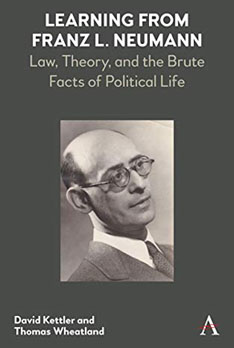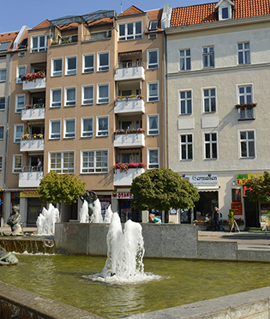Understanding the strange state of conservative theory and practice today
May 23rd, 2021 | By L. Frank Bunting | Category: Countries of the World
SPECIAL FROM L. FRANK BUNTING, PANCAKE BAY, ONTARIO. 24TH OF MAY WEEKEND. The May 13, 2021 issue of the New York Review of Books has an essay by Mark Lilla on the German novelist Thomas Mann (1875–1955), and his rather strange 1918 book Reflections of a Nonpolitical Man.
(The NYRB Classics series is in fact publishing a new edition of Reflections of a Nonpolitical Man “translated from the German by Walter D. Morris, introduction by Mark Lilla — Publication Date: May 18, 2021.” The Review does not say that Lilla’s essay in its May 13, 2021 issue is substantially the same as his introduction to the NYRB Classics republication. But that seems a plausible guess.)
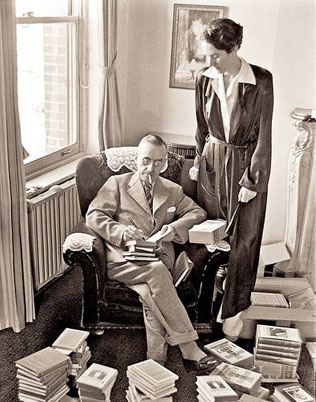
The broader point about both Lilla’s essay and the republication of Mann’s book seems to be that Reflections of a Nonpolitical Man, and Mann’s subsequent struggles to “to distance himself from many of the reactionary political views he had expressed” there, can help us understand and finally transcend the twisted and much-worse shape of so much conservative political theory and practice in our own time.
As Lilla explains, in Thomas Mann’s homeland immediately after the First World War (1914—1918) the “shock of Germany’s defeat and the punitive Versailles Treaty, compounded by hyperinflation, transformed the ideological landscape.” By 1922, only four years after Reflections of a Nonpolitical Man was published, Mann felt he had to put its “repellent” anti-democratic views behind him. He “delivered a lecture, ‘On the German Republic,’ that endorsed Weimar democracy and put himself on record against the reactionary passions that he called ‘sentimental crudity.’”
I have never quite warmed to Thomas Mann. But like others I know I remain intrigued by the democratic Weimar Republic in Germany (1919—1933) – and the various deep German thinkers who, like Thomas Mann, wound up in the United States after Hitler destroyed the Republic and established his demonically anti-democratic Third Reich (1933—1945).
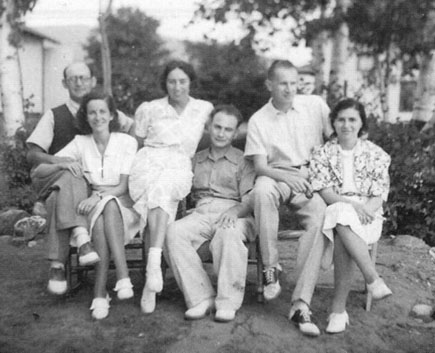
Reading Mark Lilla’s May 13, 2021 piece on Thomas Mann finally led me back to the early 1980s. At that point I had stumbled into the writing of another 1930s Weimar Germany emigré to the USA, Franz Neumann (1900—1954) . When Ronald Reagan’s (and Margaret Thatcher’s) conservatism was starting to re-orient much political thinking in many places, I found a posthumous collection of Franz Neumann’s later writing in English especially helpful. Edited by his friend Herbert Marcuse and published in 1957, it is aptly entitled The Democratic and the Authoritarian State.
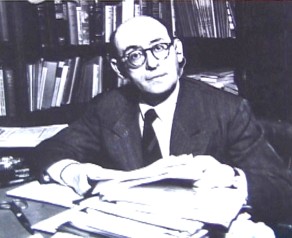
This book is largely a gathering together of Neumann’s later writing, already published in such places as Political Science Quarterly or Columbia Law Review, in volumes edited by others, or delivered as speeches at events in postwar Germany. (Neumann became an American citizen in 1943 and, according to H. Stuart Hughes, by the late 1940s he was “fully absorbed in American life,” married with children and living “in a prosperous suburb.” But he also spent more than a little time in the new democratic western Germany that struggled to rise after the Second World War. And he is described in some places today as “among the founders of modern political science in the Federal Republic of Germany.”)
In our current troubled times of the 2020s I think I can at least vaguely suggest what I still find worth much further attention in Neumann’s writing, by just reporting some titles of the 11 pieces collected by Marcuse in The Democratic and The Authoritarian State : “Approaches to the Study of Political Power” ; “On the Limits of Justifiable Disobedience” ; “The Concept of Political Freedom” ; “Notes on the Theory of Dictatorship” ; “Economics and Politics in the Twentieth Century” ; and “Anxiety and Politics.”

When I first became a little acquainted with the life and work of Franz Neumann back in the early 1980s, a leading source was an essay by the remarkable H. Stuart Hughes (grandson of Chief Justice of the United States Charles Evans Hughes, 1930—1941 – and also an elegant, engaging, and instructive historian in his own right). The essay was first published in 1969 in a larger volume on European “intellectual migration” to the United States (edited by Donald Fleming and Bernard Bailyn), and then as a chapter in H. Stuart Hughes’s own book of 1975 on The Sea Change : The Migration of Social Thought , 1930—1965. The title the alas late Mr. Hughes gives his chapter on Neumann here probably also suggests something about why I think he remains interesting for the problems of progressive politics today – “Franz Neumann : between Marxism and Liberal Democracy.”
I have just enough room left to note that in my latest journeys through cyberspace on Franz Neumann I have stumbled across some confirmation of my own high assessment of his post Second War democratic political science for our time in the 2020s. In 2019 Anthem Press published a book by David Kettler and Thomas Wheatland called Learning from Franz L. Neumann : Law, Theory, and the Brute Facts of Political Life.
A helpful summary of the chapters in this Kettler and Wheatland volume of 2019 is currently available online HERE. Quickly scrolling through these chapter summaries can give another impression of Neumann’s value for us today – starting with : “Franz L. Neumann was a twentieth-century political thinker compelled to address central issues of democratic political understanding that have unexpectedly returned to prominence in recent years.” To this I would quickly add two further examples : (1) “For most people familiar with Critical Theory, Franz Neumann is typically seen as a minor player in a complex institutional and intellectual drama … In his work as legal and political thinker, he focused on the political implications of philosophical designs he found generally sympathetic” ; and (2) Neumann “‘was a scholar for whom political science was closely linked to political action.’ His lifelong cause … was to reverse the Weimar failure of social democracy.”
Finally, to avoid a confusion in which I was at first entangled myself, note that the current Franz-Neumann-Platz subway station in Berlin is not named after this Franz Neumann, who was born in 1900 and died tragically in an automobile accident in Switzerland in 1954. It is named after a Franz Neumann who was born in 1904 and died in 1974. To thicken the plot somewhat, both Franz Neumanns were involved in the German Social Democratic Party (SPD or Sozialdemokratische Partei Deutschlands) between the world wars. The Neumann after whom the subway station is named, however, was “a famous SPD chairman” during the early Federal Republic after the Second World War. The Franz Neumann who became an American citizen and wrote the 11 essays in The Democratic and The Authoritarian State was only “among the founders of modern political science in the Federal Republic of Germany.”
